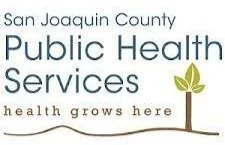
Our Curriculum.
-
Advanced US
Advance ED Clinical Pharmacy
CV- ICU
EMS
Medical education/SIM
Medical Toxicology (+/- addiction medicine)
Palliative care
Research elective
Radiology and IR
Cardiology
Community Engagement and outreach
Rural access EM (Mark Twain Medical Center)
Ophthalmology (Central Valley Eye Clinic)
Otolaryngology (San Joaquin General Clinic)
Wilderness Medicine
Global Health electives (various opportunities)
-
Simulation
EMS (anticipated 2025)
Wilderness (anticipated 2025)
-
San Joaquin General Hospital (Level 2 Trauma Center)
Trauma Surgery
Trauma ICU
UCSF Benioff Children’s Hospital -Oakland (Level 1 Trauma Center)
Pediatric Emergency Medicine
Sutter Roseville
Pediatric ICU

Community Engagement.
Emergency Medicine Community Engagement Partnership Program (EM-CEP)
Through this program, residents participate as academic service learners and function as physician liaisons between the St. Joseph’s EM department and one community-based organization in Stockton.
Understanding the constructs of the individual organization/program and resources being offered by the assigned community-based organization, and understanding the importance of treating patients in the contexts of their communities, cultures, and lives, is the foundation of this rotation, and helps form the underpinnings of cultural and societal awareness and engagement in developing physicians. Throughout residents will develop appropriate understanding of social determinants of health and its contribution to health care and health inequities.
Professional Development.
We want our residents to thrive both within and outside of the hospital and in life after residency. That’s why we’ve created a Senior Seminar Series, a Professional Development Series, a Financial Series, and a Resident as Teacher Initiative - all built into our didactic conference.
-
We want to make sure you’re prepared to find the job you want after residency, so we created this series for our senior residents to learn:
How to find a job after residency
How to write an effective cover letter and CV
How to ace your job interview
How doctors get paid
How to negotiate contracts
Liability, malpractice and risk management for physicians
Preparing for EM Boards
-
We want residents to learn all the skills necessary for practice in the real world, which is why we explicitly teach skills such as:
How to deal with difficult consultants
Life after residency
Dealing with variation in attending practice patterns
Dealing with poor patient outcomes
Work-life balance
Challenges dealing with other physicians
How to have difficult conversations
Patient satisfaction
Lifelong learning/studying tips and tricks
-
We made financial education a longitudinal part of our curriculum so you are set up for a successful financial life upon graduating residency. In this series, residents learn about:
Money mindset
Saving and spending
Retirement and how to save for it
Investing
Protecting your assets
How physicians get paid
Starting a business entity
Buying a house
Creating a financial plan
-
We believe residents should have the tools become excellent educators in addition to emergency medicine physicians. This longitudinal series is designed to teach skills including:
Why resident teachers are important.
Teaching strategies to use even on a busy shift.
How to give feedback.
Setting expectations.
Optimizing flow while teaching.
Self-reflection to encourage life-long improvement.

Research & Quality Improvement.
All residents have the support needed to engage in and complete the scholarly activity required by the ACGME and EM review committee
Our research director meets with the residents and reviews our timeline for scholarly activity at the beginning of PGY-1 so each resident has a clear outline for expectations and goals.
Residents also all spend time engaged on hospital committees; it is through this that they not only gain experience and insight into the inner workings of aspects they might not usually have exposure to, but they also gain the opportunity to engage in quality improvement work as well.




